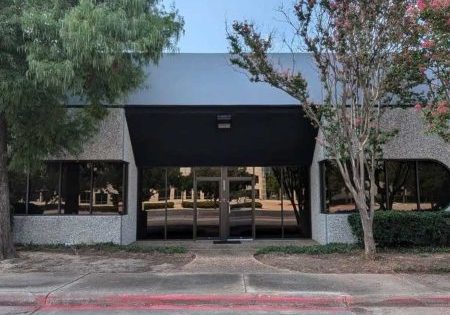Driving Smarter Elevator Business Succession Planning
May 1, 2025

In this Readers’ Platform, your author explains why technology is key.
by Jonathan Taub
In the independent elevator contractor industry, many businesses are family-owned and passed down through generations. But, what happens when someone wants to retire or an unexpected situation occurs? Who will replace the existing business operators?
This is where business succession planning comes in. It’s a proactive approach to identifying and developing new leaders to take over a company when current leadership steps down or reduces their role. These new leaders might already be within the business or, in some cases, might come from outside the company. The main goal of succession planning is to ensure business continuity and minimize disruptions due to changes in personnel.
There is a growing need to plan for these transitions effectively. Innovative technologies can help address the challenges posed by the industry’s unique dynamics.
Why Succession Planning Is Crucial for Your Company’s Future
The independent elevator contractor industry is dominated by multigenerational family businesses, so succession planning within it carries additional sensitivity. With more than 70% of elevator contractors being family-owned businesses, the need to transition to the next generation or find qualified external successors is increasingly important.
This importance is heightened by the industry’s unique challenges. The elevator sector is highly specialized and faces rapid regulatory changes, complex equipment advancements, challenging workforce dynamics and a significant lag in adopting modern technologies that could support the complexities of elevator service contracting.
Successful succession strategies ensure business continuity and growth in the independent elevator contractor industry. By preparing future leaders in advance, companies can ensure smooth transitions that benefit both employees and customers. However, failing to plan adequately can expose businesses to significant risks.
Seven Risks of Poor Succession Planning
A lack of structured succession planning can expose your elevator company to several risks, such as:
- Leadership Gaps: Not identifying the next business successors creates a leadership void that can result in strategic inactivity and operational disruption.
- High Staff Turnover: Employees may leave if they dislike their new management or lack of career opportunities.
- Loss of Knowledge: Without proper knowledge transfer, valuable industry insights and strategic information is often lost.
- Decreased Morale: A lack of clear career paths can lead to decreased motivation and productivity.
- Reputational Damage: Poor leadership transitions can harm your business’ reputation with clients, suppliers and the entire industry.
- Increased Recruitment Costs: Finding and onboarding external talent to fill leadership roles can be expensive.
- Reduced Business Valuation: Leadership uncertainty can erode market confidence and shareholder value.
The independent elevator contractor industry is dominated by multigenerational family businesses, so succession planning within it carries additional sensitivity.
Future Elevator Industry Challenges and Opportunities
Over the next five years, elevator companies will face several significant challenges, including:
- Embracing new technologies such as AI
- Navigating evolving compliance regulations
- Managing skilled-labor shortages
Without proper succession planning, these challenges can lead to high operational risks and potential business instabilities. However, for companies that handle these challenges well, opportunities to increase business valuation present themselves.
Leveraging Technology for Elevator Business Succession Planning
Effective succession planning strategies involve managing various components — from identifying potential successors and developing their skills to aligning these efforts with broader business strategies. Technology can play a crucial role in making these tasks more structured and efficient.
For elevator contractors, implementing advanced enterprise resource planning (ERP) software can provide a comprehensive view of operations, improve client data management, automate processes and enhance scalability. Innovative ERP systems support succession planning by offering the next generation of leaders accurate, real-time data and actionable insights.
Advanced ERP systems can capture interdepartmental data related to sales, service, maintenance, modernization, construction, safety, parts management, violations, certificate tracking, finance and other operational areas. This extensive view helps to:
- Identify potential future leaders
- Highlight skill gaps
- Assess financial stability
- Gauge overall business performance against key performance indicators
Committing to an effective succession plan for your elevator business means equipping new leaders with the tools they need to succeed such as industry-specific business management software.
Begin your exploration of the complex world of elevator field service management software with FIELDBOSS’s detailed six-step guide to software selection. Gain a deep knowledge of field service software with professional advice on evaluation, analysis and choosing the most suitable software — one that best corresponds to your unique company needs.
In the elevator industry, where project management and customer service are critical, tailored software solutions based on your unique processes and structure are designed to streamline workflows, sync office and technician communication and provide real-time insights into operational margins and risks.
Preparing for the Future Generation of Elevator Business Owners
To ensure the continued success of your elevator business, it is crucial to develop a strategic roadmap that includes long-term succession strategies. By moving beyond outdated practices and embracing technological advancements, elevator contractors can effectively plan for the future.
Implementing an advanced, all-in-one business management system like FIELDBOSS can streamline your succession planning process by providing the tools necessary to identify and develop future leaders. FIELDBOSS offers comprehensive visibility into every aspect of your operations — from sales and service to maintenance and finance, making it easier to prepare for seamless leadership transitions.
Get more of Elevator World. Sign up for our free e-newsletter.









